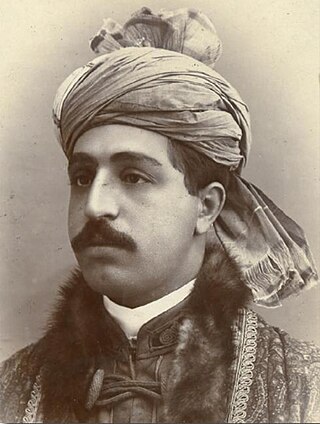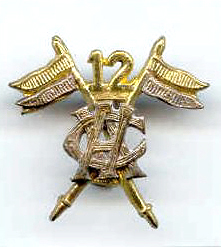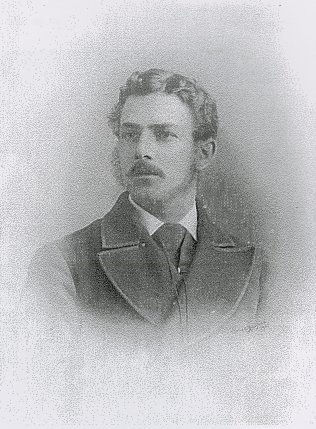Related Research Articles

The Second Anglo-Afghan War was a military conflict fought between the British Raj and the Emirate of Afghanistan from 1878 to 1880, when the latter was ruled by Sher Ali Khan of the Barakzai dynasty, the son of former Emir Dost Mohammad Khan. The war was part of the Great Game between the British and Russian empires.

The 101st Grenadiers was a regiment of the British Indian Army.

The Battle of Maiwand, fought on 27 July 1880, was one of the principal battles of the Second Anglo-Afghan War. Under the leadership of Ayub Khan, the Afghan forces defeated a much smaller British force consisting of two brigades of British and Indian troops under Brigadier-General George Burrows, albeit at a high price: between 2,050 and 2,750 Afghan warriors were killed, and probably about 1,500 wounded. British and Indian forces suffered 1,200 dead.

Ghazi Mohammad Ayub Khan also known as the Victor of Maiwand or the Afghan Prince Charlie was, for a while, the governor of Herat Province in the Emirate of Afghanistan. He was briefly the Emir of Afghanistan, from 12 October 1879 to 31 May 1880. He also led the Afghan troops during the Second Anglo-Afghan War and defeated the British Indian Army at the Battle of Maiwand. Following his defeat at the Battle of Kandahar, Ayub Khan was deposed and exiled to British India. However, Ayub Khan fled to Persia. After negotiations in 1888 with Sir Mortimer Durand, the United Kingdom's ambassador at Tehran, Ayub Khan became a pensioner of the British Raj and traveled to British India in 1888, where he lived in Lahore, Punjab, until his death in 1914. He was buried in Peshawar and had eleven wives, fifteen sons, and ten daughters. Two of his grandsons, Sardar Hissam Mahmud el-Effendi and Sardar Muhammad Ismail Khan, served as brigadiers in the Pakistan Army.

The Battle of Ahmed Khel took place during the Second Anglo-Afghan War. It was fought on 19 April 1880, on the road between Kandahar and Kabul in central Afghanistan between Afghan tribesmen and soldiers of the British Empire, including forces from both British and Indian armies.

The Battle of Kandahar, 1 September 1880, was the last major conflict of the Second Anglo-Afghan War. The battle in southern Afghanistan was fought between the British forces under command of General Roberts and the Afghan forces led by Ayub Khan. It ended with a decisive British victory over Afghan forces. Ayub Khan, who lost his entire artillery, vast quantities of ammunition, and about 1,000 men killed, became a fugitive along with the small remnants of his army.

Maiwand is a village in Afghanistan within the Maywand District of Kandahar Province. It is located 50 miles northwest of Kandahar, on the main Kandahar–Lashkargah road.
The 66th (Berkshire) Regiment of Foot was an infantry regiment of the British Army, raised in 1756. Under the Childers Reforms it amalgamated with the 49th (Hertfordshire) Regiment of Foot to form the Princess Charlotte of Wales's in 1881.

The Royal Berkshire Regiment (Princess Charlotte of Wales's) was a line infantry regiment of the British Army in existence from 1881 until 1959. The regiment was created in 1881, as the Princess Charlotte of Wales's (Royal Berkshire Regiment), by the amalgamation of the 49th (Princess Charlotte of Wales's) (Hertfordshire) Regiment of Foot and the 66th (Berkshire) Regiment of Foot. In 1921, it was renamed the Royal Berkshire Regiment (Princess Charlotte of Wales's).

The Maiwand Lion is a sculpture and war memorial in the Forbury Gardens, a public park in the town of Reading, in the English county of Berkshire. The statue was named after the Battle of Maiwand and was unveiled in December 1886 to commemorate the deaths of 329 men from the 66th (Berkshire) Regiment of Foot during the campaign in the Second Anglo-Afghan War in Afghanistan between 1878 and 1880. It is sometimes known locally as the Forbury Lion.
Maiwand District is situated in the western part of the Kandahar Province, Afghanistan. It borders Helmand Province to the west, Ghorak District to the north, Khakrez District to the northeast, Zhari District to the east, and Panjwayi District to the south. The population is 51,900 (2006). The district center is in Hutal, located in the central part of the district. Highway 1 runs through the center of the district and connects two of the major cities in southern Afghanistan, Kandahar and Lashkargah.

The 12th Cavalry Sam Browne's Cavalry (Frontier Force) is an armoured regiment of Pakistan Army. It was formed in the British Indian army in 1922 by the amalgamation of 22nd Sam Browne's Cavalry (Frontier Force) and 25th Cavalry (Frontier Force).

The Afghanistan Medal, sanctioned on 19 March 1881, was awarded to members of the British and Indian armies who served in Afghanistan between 1878 and 1880 during the Second Afghan War, the first war being from 1839 to 1842.

The Kabul Field Force was a field force created in September 1879 during the Second Anglo-Afghan War, under the command of General Frederick Roberts. It combined British Army and British Indian Army regiments, and initially numbered around 7,500 men, but later reached about 14,000.
Thomas Harris was an English soldier and amateur cricketer who was born in British India. He was born at Bellary in British India in 1845.
Brigadier Surgeon George Alexander Moorhead MD LRCSI MRCPI was a British military surgeon. He was father to Alice Moorhead and Ethel Moorhead.

General Sir Robert Phayre G.C.B. was a General in the Indian Army who served most of his military career in India including in the First Afghan War, the Second Afghan War, the Indian Mutiny and who was Resident at Baroda from 1873 to 1874 during which period Maharaja Malhar Rao Gaekwad, precipitated the Baroda Crisis and then attempted to poison Phayre, by putting arsenic and diamond dust in his sherbet.

Lieutenant Thomas Rice Henn (1849–1880) of the Royal Engineers was an Irish officer in the British Army. He was killed in action near the end of the Battle of Maiwand while covering the retreat of routed British forces.

Major George Frederick Blackwood (1838–1880) of the Royal Horse Artillery was a Scottish artillery officer in the service of the East India Company and the Raj. He was killed in action at the Battle of Maiwand, a major British defeat.

Lieutenant-Colonel James Galbraith of the 66th (Berkshire) Regiment of Foot was an Irish infantry officer in the British Army. He was killed in action at the Battle of Maiwand.
References
- 1 2 3 Reading Evening Post: Memorial for dog hero of Maiwand
- ↑ Cooper, Jilly (2000). Animals in war. Corgi. ISBN 0-552-99091-4.
- ↑ Barthorp, Michael (1982). The North-West Frontier. Blandford Press. p. 86. ISBN 0-7137-1133-7.
- 1 2 "Reading Museum launch". 11 April 2014.
- ↑ garenewing.co.uk/angloafghanwar/articles/dogs.php